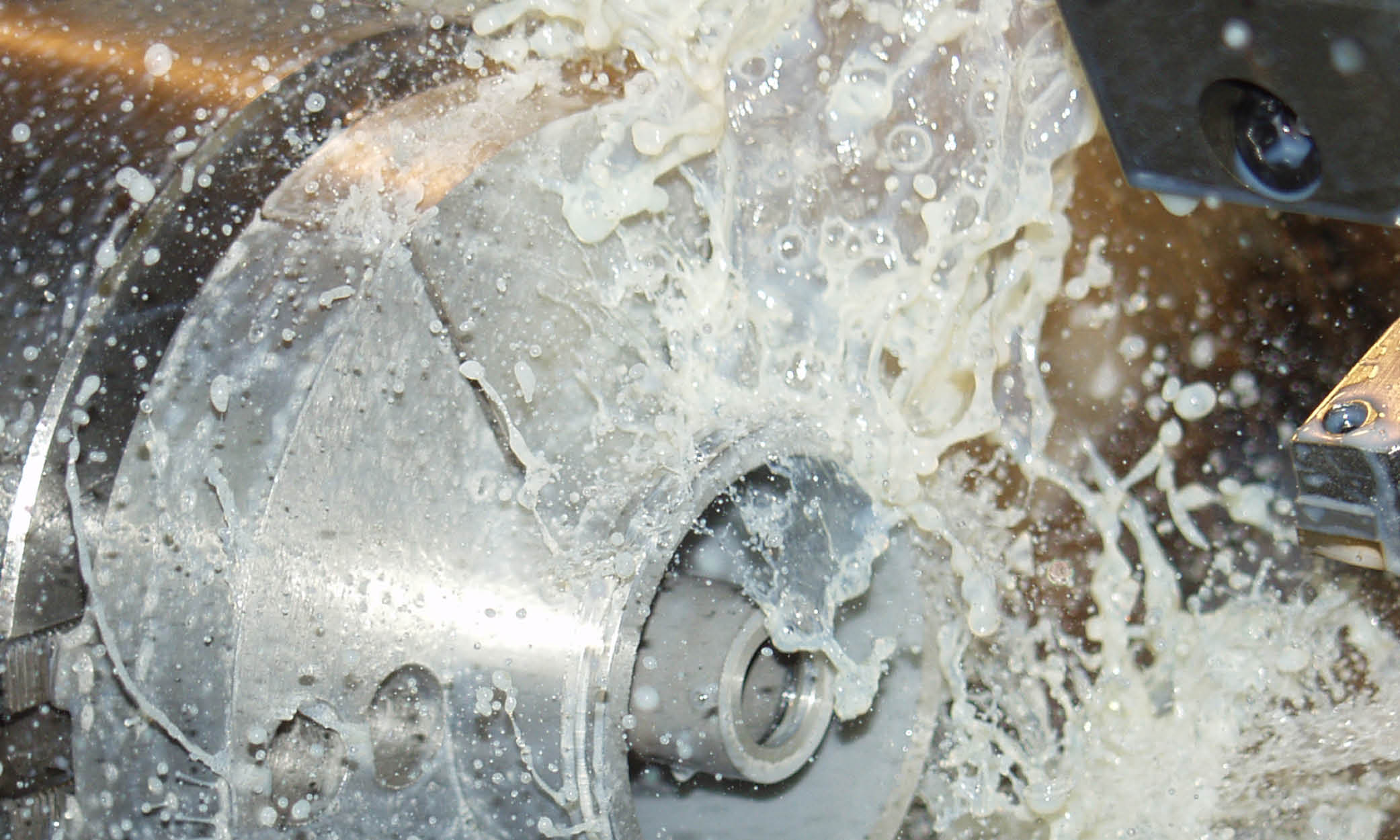 Eliminating Monday Morning Odors
Eliminating Monday Morning Odors
If you’re looking for information on how to avoid Monday morning odors when your machines are restarted after sitting over the weekend, this article will help you understand what causes these odors and how to eliminate the cause.
Causes:
- Tramp oil in the coolant increases the potential for anaerobic bacteria (bacteria that does not require oxygen to live) to establish a foothold in the coolant sump. This is done by providing an excellent food source for these microbes.
- Various anaerobes produce H2S (hydrogen sulfide) gas as a by product. This gas is released when the sulfur components of the slideway lubricant and spindle lube (tramp oil) are metabolized by anaerobic bacteria.
- The release of H2S gas into the atmosphere is an odor that most metalworkers are familiar with. The smell of rotten eggs often referred to as “Monday morning stink”, occurs when the coolant system is turned on after a shop floor has been idle over a weekend.
- The interaction of the H2S and water, along with anaerobic bacteria metabolites, produces various acids. These acids drive the pH of the fluid down to a more acidic pH level. The lower pH of the coolant can cause ferrous rust to form, as the acids attack the metal surfaces of the machine tool and parts. If the metalworking fluid concentration is below the recommended minimum, this process is accelerated.
- Remove tramp oil. Because tramp oil is a problem for metalworking fluid it should be regularly removed from the sump. There are several types of tramp oil removal equipment available on the market. These can range from simple disc and belt skimmers to more elaborate coalescers and highspeed centrifuges. Any form of tramp oil removal is better than nothing at all and should be performed on a weekly, if not daily, basis. For help with determining the best tramp removal equipment for your operation contact your Chem Arrow sales representative. Most options are inexpensive and will pay for themselves by helping maintain your metalworking fluid at the optimum performance level.
- Water source. Have your current water analyzed to determine its hardness. If it is determined to be high in mineral content it is advised you use DI (deionized) water, a RO (reverse osmosis) system, or a water softener instead of tap water to mix your metalworking fluids. Using processed water with most of the hardness minerals removed will help to prolong the life of your coolant. Hard water minerals interfere with the emulsifiers in coolants, making them less effective. Using processed water reduces fluid usage, minimizes residues, improves emulsion stability and slows bacteria growth.
- Machine cleaning. Clean out machines on a regular basis to remove odor causing bacteria. Your Chem Arrow sales representative can recommend a machine cleaner such as ArrowClean 25020 and provide step by step instructions on the proper way to clean a machine for maximize results.
- Concentration & pH levels. Maintain the proper concentration and pH levels of your metalworking fluid. Low concentrations can lead to rust, rancidity, reduced tool life and reduced lubricity. High concentrations can result in foam, skin irritation, residue and increased costs. Using a fluid mixer helps eliminate the guesswork in mixing your metalworking fluid. Topping up machines regularly prevents high and low concentration levels.
- Chip removal. Removing chips regularly from your machine tool sump is critical. The chips provide an ideal breeding ground for bacteria. Chips will also occupy space in the sump designed for the metalworking fluid. Reduced volume of fluid in the sump impacts pump performance which in turn can cause cavitation and foam. Increased chip and dirt loads may also impact surface finish on parts and contribute to operator dermatitis issues.
- Dead end lines. Some facilities transfer (pump) fluid through lines to the machines to make it easier to fill the machine. During times when the machines are idle and the coolant sits in the line and gets stagnate, bacteria growth is accelerated, causing odors. It is recommended to clean or flush the lines on a regular basis.
Main points to remember for a better smelling workplace
- Always maintain the correct metalworking fluid concentration
- Top up machines on a regular basis
- Remove tramp oil
- Remove excess chips
- Keep your work area tidy
Please contact Chem Arrow for more information on proper metalworking fluid maintenance or if you have questions on how to eliminate any type of metalworking fluid issue.
![]()